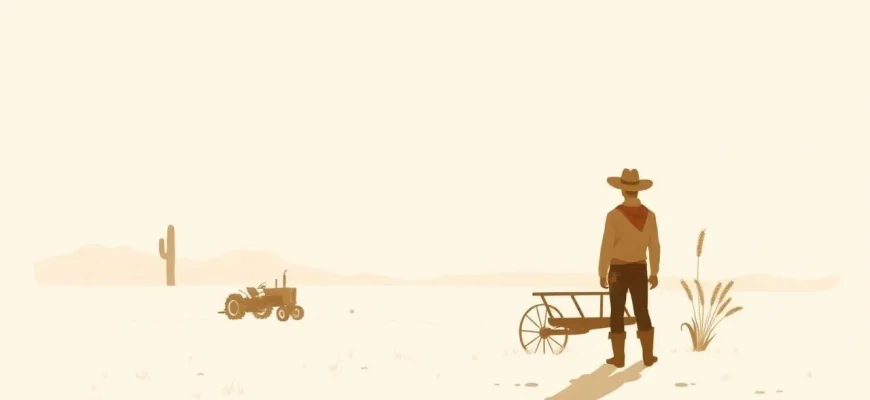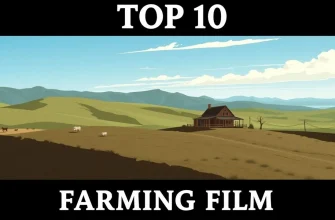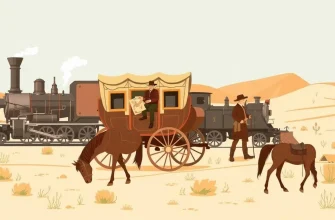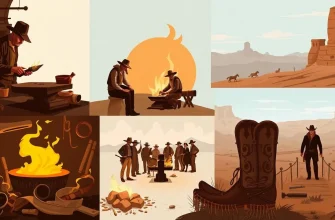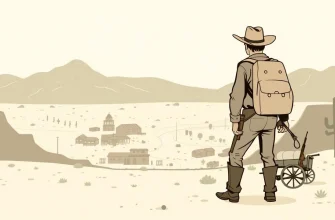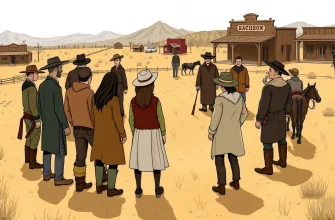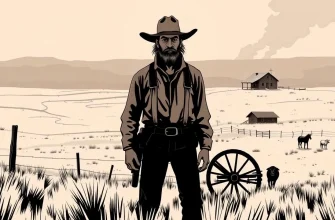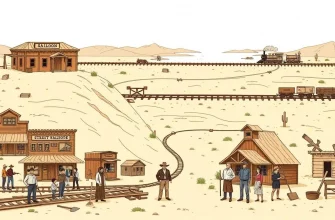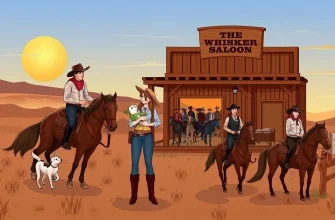Saddle up for a cinematic journey where the Wild West meets the plow! This curated list of Western films delves into the often overlooked aspect of frontier life: farming. These movies not only showcase the rugged landscapes and classic Western themes but also highlight the struggles and triumphs of those who tilled the soil in the untamed territories. Whether you're a fan of the genre or just looking for a fresh take on Westerns, this collection promises to entertain with its unique blend of action, drama, and the pastoral life.

Oklahoma! (1955)
Description: This musical Western, set in the early 1900s, focuses on the lives of farmers and cowboys in the Oklahoma Territory. It's a celebration of the American frontier spirit, showcasing the transition from wild land to settled farms.
Fact: The film was adapted from the successful Broadway musical of the same name, and it was one of the first films to be released in Todd-AO, a widescreen format.
 Watch Now
Watch Now 
The Big Country (1958)
Description: This epic Western revolves around a retired sea captain who arrives in the West to marry his fiancée but finds himself embroiled in a feud between two rival ranch families. The film explores themes of land ownership and the harsh realities of farming in the arid West.
Fact: Gregory Peck learned to ride horses for this film, despite his fear of them. The film was nominated for two Academy Awards, winning one for Best Original Score.
 Watch Now
Watch Now 
The Sundowners (1960)
Description: This film follows an Australian drover and his family as they travel across the outback, eventually settling down to farm. It's a poignant look at the transition from a nomadic lifestyle to one of farming and community.
Fact: The film was shot on location in Australia, providing a realistic backdrop to the story.
 Watch Now
Watch Now 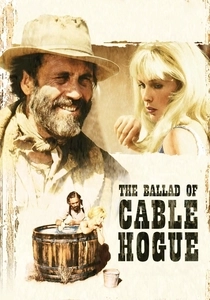
The Ballad of Cable Hogue (1970)
Description: This quirky Western tells the story of a prospector who, after being left for dead, finds water in the desert and turns it into a profitable way station. It's a tale of entrepreneurship in the West, with farming elements as he cultivates the land around his station.
Fact: The film was directed by Sam Peckinpah, known for his gritty Westerns, but this one stands out for its lighter, more comedic tone.
 Watch Now
Watch Now 
The Cowboys (1972)
Description: John Wayne stars as a rancher who must herd cattle to market with the help of schoolboys after his ranch hands leave for a gold rush. The film captures the essence of ranching life and the importance of cattle drives to the economy of the West.
Fact: This was one of the last films John Wayne made before his death, and it was also one of his most critically acclaimed roles.
 Watch Now
Watch Now 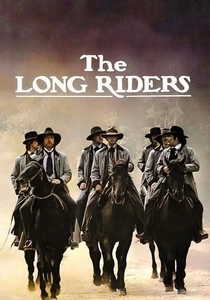
The Long Riders (1980)
Description: While primarily about the James-Younger Gang, this film includes scenes of farming and the struggle for land, reflecting the broader context of the time where outlaws and farmers often crossed paths.
Fact: The film is notable for casting real-life brothers to play the James and Younger brothers, adding authenticity to the family dynamics.
 Watch Now
Watch Now 
The Man from Snowy River (1982)
Description: Set in the Australian outback, this film tells the story of a young man who must prove himself by rounding up a herd of wild horses. While not a traditional Western, it captures the spirit of the frontier and the importance of livestock to the settlers' livelihood.
Fact: The film was based on the poem by A.B. "Banjo" Paterson, and it helped launch the career of Tom Burlinson, who played the lead.
 Watch Now
Watch Now 
The Horse Whisperer (1998)
Description: While not a traditional Western, this film explores the relationship between humans and horses, a key aspect of ranching and farming life in the West. It's about healing and the connection to the land.
Fact: Robert Redford, who stars in the film, also directed it, and the film was shot in Montana, capturing the vastness of the American West.
 Watch Now
Watch Now 
The Electric Horseman (1979)
Description: This modern Western involves a former rodeo star turned advertising icon who rescues a mistreated horse, leading to a cross-country journey. It touches on themes of freedom, the land, and the exploitation of the West's natural resources.
Fact: The film was inspired by real-life events involving a horse named Rising Sun, who was paraded in a Las Vegas show.
 30 Days Free
30 Days Free 
The Hi-Lo Country (1998)
Description: Set in the 1940s, this film follows two cowboys who return home after WWII to find their ranching lifestyle threatened by modernization. It's a poignant look at the changing face of the West and the decline of traditional farming practices.
Fact: The film was adapted from a novel by Max Evans, and it features a strong ensemble cast including Woody Harrelson and Billy Crudup.
 30 Days Free
30 Days Free 
